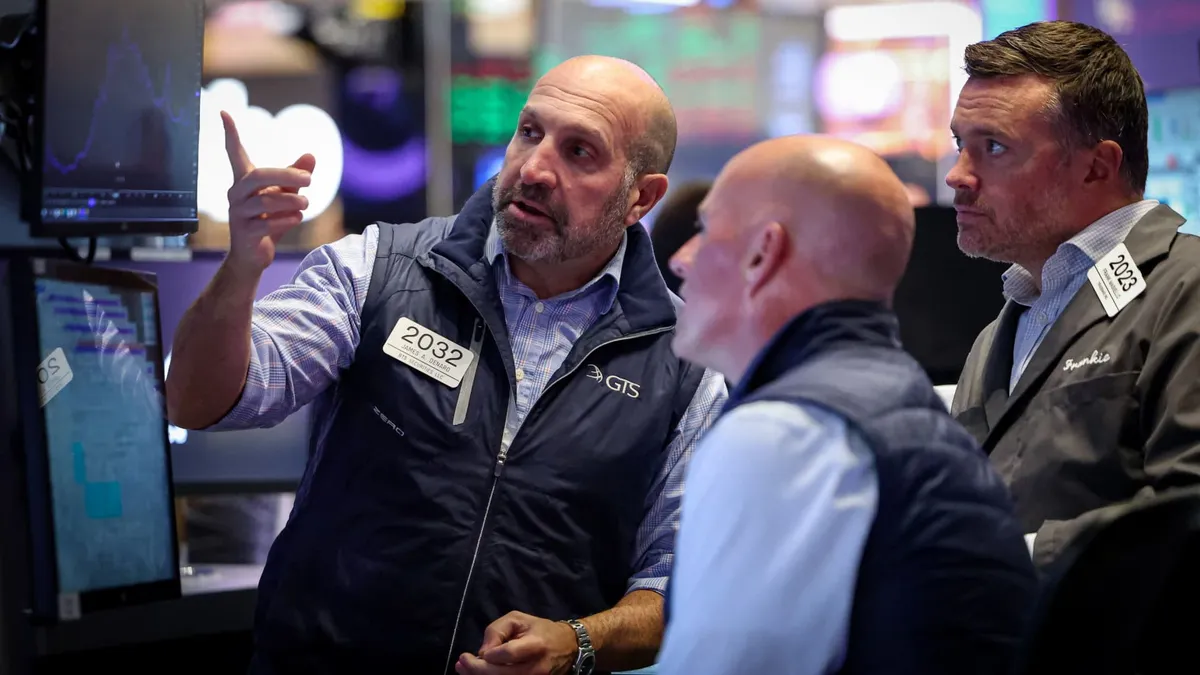
Stock futures are showing little movement as investors prepare to close out an unusually strong September, looking to build on the momentum from Monday's trading session. Futures associated with the Dow Jones Industrial Average dipped by 3 points, reflecting a change of 0.01%. Similarly, S&P futures decreased by 0.02%, while Nasdaq 100 futures saw a decline of 0.03%. On Monday, stocks finished higher across the board, primarily driven by companies involved in the artificial intelligence (AI) sector, which regained ground after facing challenges the previous week.
Last week, stock prices experienced a downturn due to increasing worries about the cyclical nature of AI deals and various obstacles that could impede progress, including rising debt levels and constraints on energy supplies. However, many investors remain optimistic that robust earnings from the “Magnificent Seven” tech companies, along with other significant chipmakers, will continue to propel the market upward.
As the October 1 funding deadline approaches, the threat of a federal government shutdown looms, adding a layer of uncertainty to the market. Typically, government shutdowns do not significantly impact market dynamics; however, given the current economic climate, this situation may prove different. Investors are already cautious due to a slowing labor market, concerns about stagflation, and high stock valuations. A shutdown could also lead credit rating agencies to reassess the condition of U.S. credit, which had already faced a downgrade by Moody's in May.
On Monday evening, Vice President JD Vance commented after a meeting with President Donald Trump and top congressional leaders, stating, “I think we’re headed to a shutdown because the Democrats won’t do the right thing.” The Labor Department also announced that if the government suspends operations, the highly anticipated September nonfarm payrolls report scheduled for release on Friday will not be published. This report is critical, as it is one of several key data releases providing insight into the economy ahead of the Federal Reserve's policy meeting in October.
Compounding the fears surrounding the shutdown, President Trump warned over the weekend that a shutdown could lead to mass layoffs of federal workers. Jack Janasiewicz, the lead portfolio strategist and portfolio manager at Natixis Investment Managers, noted that a government shutdown could generate tangential effects on near-term market sentiment and increase volatility. “With investors acutely aware of the risks associated with a softening labor market and closely monitoring tariff impacts on inflation, any delay in economic data collection due to a shutdown could heighten uncertainty,” Janasiewicz explained.
He added, “Increased uncertainty often correlates with greater financial market volatility. While the impact may not be long-lasting, prolonged uncertainty poses a greater risk to the economic backdrop and risk assets.”
Despite these concerns, major U.S. stock indexes remain near record highs. The S&P 500 has surged over 3% this month, while the Dow Jones Industrial Average has gained 1.7%. The tech-heavy Nasdaq Composite has notably outperformed, with an impressive gain of approximately 5.3% in September. Tuesday also marks the conclusion of the third quarter, during which the broad-based index is up 7.4% quarter-to-date, and the Nasdaq is on track for an almost 11% quarterly gain. The Dow is up 1.7% for the three-month period, potentially marking its fifth consecutive positive quarter.
It’s important to note a correction regarding Vail Resorts, which posted a fiscal fourth-quarter loss of $5.08 per share. Additionally, Progress Software has also reported earnings. An earlier post inaccurately stated Vail’s loss and misidentified Progress Software.